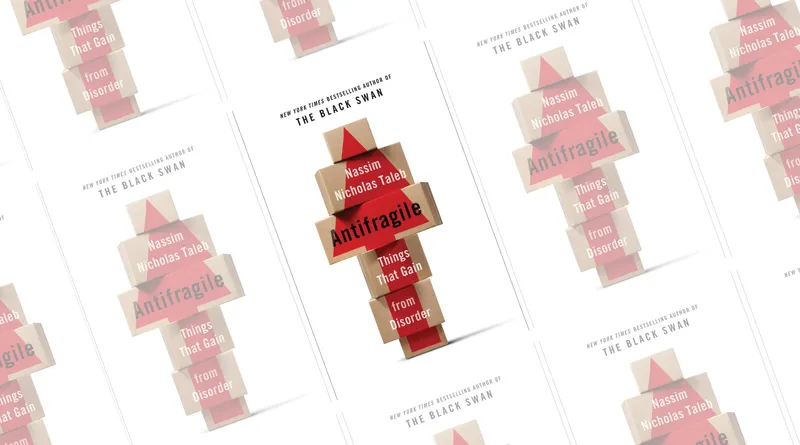
Nassim Nicholas Taleb, a well-known author and former trader, best known for his earlier work The Black Swan, introduces a provocative new concept, antifragility.
Taleb argues that the opposite of fragility, which breaks under stress, is not resilience, which is the ability to withstand stress; that’s simply the zero for the one, but there is no word for minus one. So, Taleb invents a new word: antifragility.
Fragile systems – like glass that shatters under pressure – are contrasted with antifragile ones, such as the human body, which grows stronger when stressed (e.g., muscles after exercise). Taleb argues that modern society, obsessed with stability and predictability, often creates fragile systems – think of overprotected economies or micromanaged lives – while nature and history favor the antifragile.
The book effortlessly blends philosophy, mathematics, and storytelling to explore this idea in domains such as economics, medicine, and personal decision-making.
A central theme is Taleb’s critique of top-down control. He skewers “fragilistas” – policymakers, academics, and bureaucrats – who impose artificial order, believing they can predict and manage complex systems. The 2008 financial crisis, he argues, exemplifies fragility born from overconfidence in models and debt-fueled stability. In contrast, antifragile systems—like small businesses or decentralized societies—adapt and evolve through trial and error. Taleb champions “skin in the game” (a concept revisited later in a dedicated book), insisting that those who take risks must bear consequences, a principle he sees lacking in modern elites.
For investing, he introduces the “barbell strategy” – balancing extreme safety with calculated risk-taking – as a practical antifragile approach to life and investing. For instance, keeping most assets ultra-safe while speculating with a small, high-risk portion avoids ruin while courting the upside.
Ultimately, Antifragile challenges conventional thinking about risk and progress. Nassim Nicholas Taleb recommends embracing uncertainty, rejecting overprotection, and building personal and societal systems that improve with shocks. Since 2012, the book’s relevance has only grown as events like pandemics, market crashes, and geopolitical upheavals expose the fragility of centralized systems.
While not a manual, it’s a philosophical guide for navigating a chaotic world. For anyone questioning modernity’s obsession with control, Taleb offers an unexpected antidote: don’t just survive disorder; thrive in it.